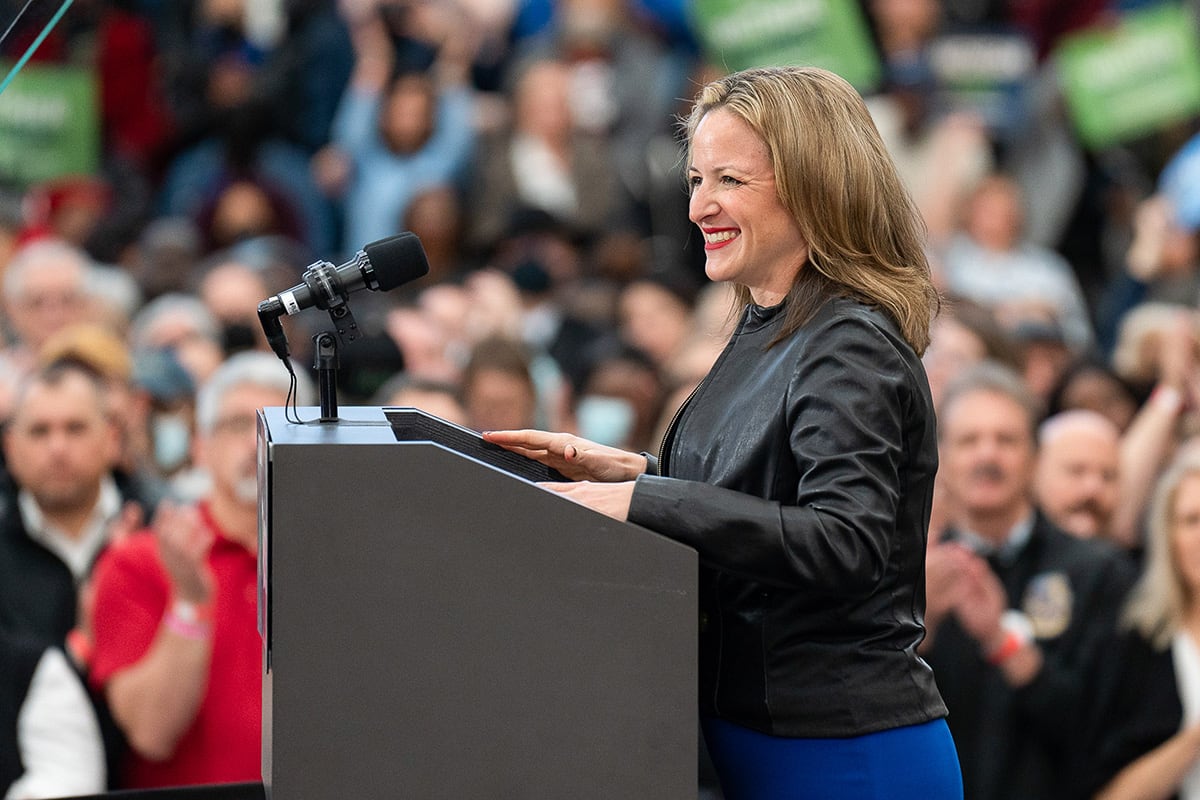Votebeat is a nonprofit news organization reporting on voting access and election administration across the U.S. Sign up for our free newsletters here.
The Michigan Court of Appeals last week ruled that Secretary of State Jocelyn Benson exceeded her authority last year when she put new restrictions in place governing poll challengers, the third time Michigan courts have rebuffed Benson for creating new election rules without going through an administrative process set by law.
The panel of three appellate judges on Thursday upheld a lower court ruling from a year ago in a case brought by Republicans, finding that the Michigan Department of State “must follow the requirements of the Michigan Administrative Procedure Act and that under the state law a department can set new rules only after it has gone through the public notice and comment process.”
The Secretary of State’s Office said Monday it plans to appeal the decision to the Michigan Supreme Court. The current rules for poll watchers and challengers will remain in effect during the appeals process, spokeswoman Angela Benander said.
Republicans previously had successfully challenged Benson’s rules in 2020 on the standard for approving absentee ballot signatures and a ban on open carry of firearms near polling places.
At issue in all three rulings is whether Benson followed Michigan administrative law. She put in place the new rules for poll challengers in a May 2022 manual, “The Appointment, Rights, and Duties of Election Challengers and Poll Watchers.”
Changes in rules by a state agency are guided by the Michigan Administrative Procedures Act, which requires that the changes are proposed through public notice and a comment period before the changes are put into place. The Legislature’s bipartisan Joint Committee on Administrative Rules governs this process of rule-making by holding hearings on the proposed rules.
Benson and Bureau of Elections Director Jonathan Brater had asserted in the Court of Claims last year that the manual did not need to go through that process because Michigan election law grants the secretary of state “broad authority” to issue instructions, advice and directives and the May 2022 manual falls within these categories.
The appellate judges ruled last week that while Benson’s authority means she can issue non-rule instructions to election staff, she does not have the same authority over poll challengers and poll watchers.
“Defendants may issue mere instructions that are binding on election workers who operate as defendants’ employees and subordinates, but regulations targeting election challengers or poll watchers reach beyond defendants’ general supervisory scope and must be promulgated as APA rules,” the panel wrote.
The latest ruling focuses on five areas in which Benson tried to put new limits how poll challengers operate at polling places or around absentee vote counting boards:
- A new requirement that challengers appointed by political parties obtain a challenger credential card;
- A prohibition on appointing challengers on Election Day;
- Preventing communication with election inspectors other than the “challenger liaison”;
- A restriction on considering “impermissible challenges” to a voter’s eligibility, defined as making “a challenge indiscriminately or without good cause”;
- A ban on electronic devices, including cell phones, in the Absent Voter Counting Board facilities.
The case was originally brought by a group of Republican activists, including some who had previously served as poll challengers — Philip O’Halloran, Robert Cushman, and Braden Giacobazzi — and two unsuccessful legislative candidates in 2022, Penny Crider and Kenneth Crider.
The case was combined with a lawsuit brought days later by the Michigan Republican Party and the Republican National Committee.
Two other recent efforts by Benson to set new rules in elections were challenged by Republicans and blocked by Michigan courts for flouting the state’s formal rule-making process.
In October 2020, the Court of Claims dealt Benson a defeat when she attempted to ban open carry of guns at polling places and found she had not followed the Administrative Procedures Act. The Court of Appeals immediately upheld that decision.
In another case five months later, the Michigan’s Court of Claims ruled against Benson, saying she did not take the correct procedural steps when instructing clerks on how to verify voters’ signatures on absentee ballots.
Oralandar Brand-Williams is a senior reporter for Votebeat in partnership with Bridge Michigan. Contact Oralandar at obrand-williams@votebeat.org.
Jonathan Oosting of Bridge Magazine contributed to this report.






